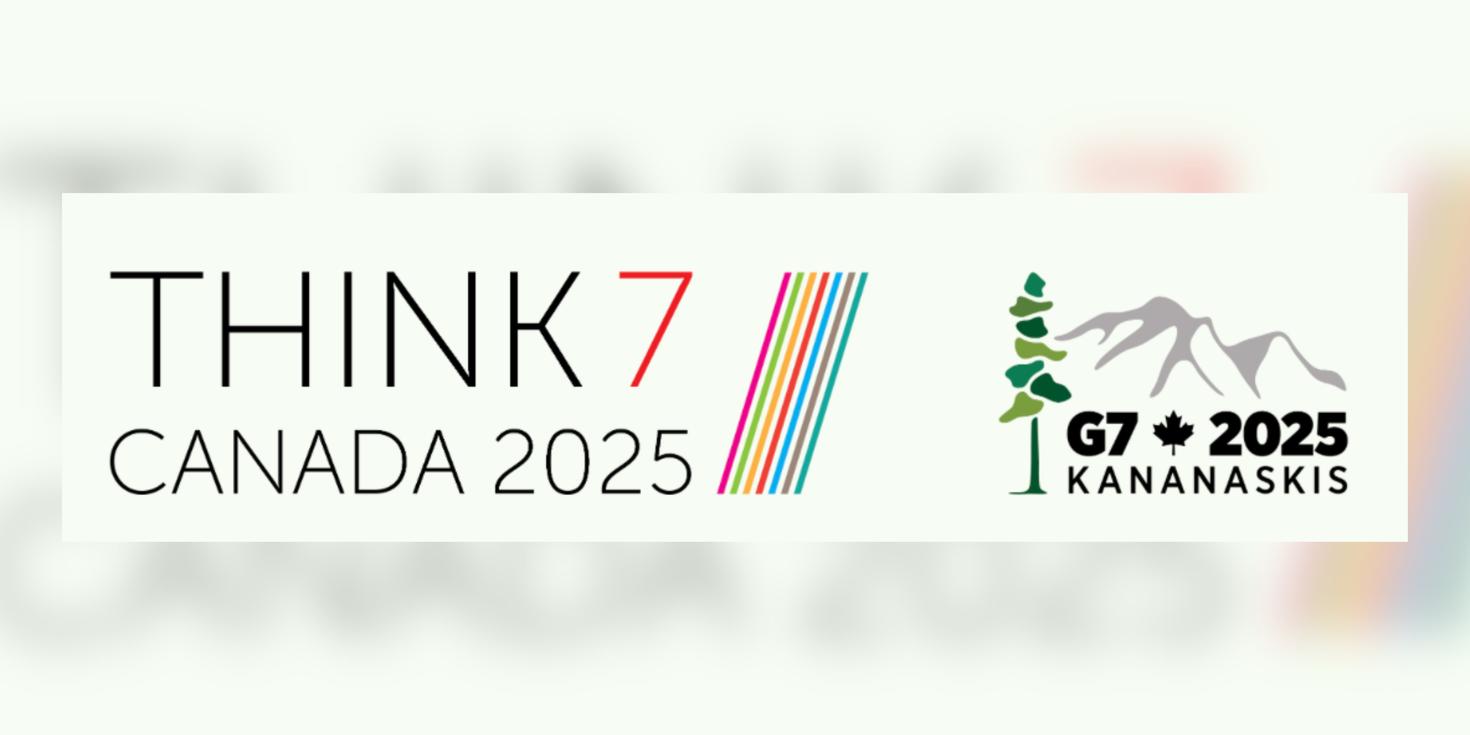Think7 (T7) is the official engagement group of the Group of Seven (G7) that brings together leading think tanks and research centres worldwide to provide evidence-based advice and policy recommendations to the G7 Presidency.
Their expertise is conveyed to G7 leaders through reports, position papers and policy recommendations, offering guidance and potential solutions. This year, the T7 solicited hundreds of policy ideas from around the world that led to about 20 final policy briefs built around four thematic areas to shape the recommendations for the G7. These themes constitute the task force domains and provide context and a framework for addressing key challenges: Transformative Technologies—AI and Quantum; Digitalization of the Global Economy; Environment, Energy and Sustainable Development; Global Peace and Security. The Policy Briefs served as background material for the T7 Communiqué to be presented to the Canadian Presidency ahead of the G7 Summit.
One of the 20 policy briefs titled “Enabling Quantum Technology Cooperation: A Strategic Priority for the G7 Ecosystem in the Global Race” was authored by Dr. Florian Martin-Bariteau, the University Research Chair in Technology and Society and an Associate Professor of Law at the University of Ottawa where he leads the Centre for Law, Technology and Society, Tina Dekker, a LLM candidate at the University of Ottawa, and Lisa Lambert, the CEO of Quantum Industry Canada.
In their policy brief, the authors note the G7 has a unique opportunity to shape quantum technology development through coordinated action before disparate national approaches create entrenched challenges and hinder fruitful cross-border collaborations. However, current export controls among G7 nations lack harmonization, creating competitive imbalances and hindering innovation while potentially failing to adequately address fundamental security concerns.
They suggest G7 governments should commit to adopt a risk-based regulatory framework that balances security needs with innovation and cross-border collaboration within trusted partnerships. In addition, they propose for G7 to establish a Quantum Technology Point of Contact Group to provide critical coordination mechanisms to secure supply chains, align trade measures, and accelerate quantum market growth.
Dr. Martin-Bariteau presented the policy proposals to government, industry, academic and civil society stakeholders at the T7 Summit on April 2, 2025. Since, the policy ideas have made their way to the official T7 Communiqué and have been presented to Canadian presidency. Prof. Martin-Bariteau has also been invited to present their propositions to key regulators in Canada and within the G7.
The policy brief was developed as part of the groundbreaking research led since 2019 by Dr. Martin-Bariteau and now supported by the University Research Chair in Technology and Society and the NSERC Alliance Quantum Consortium—QUébec Ontario consoRtium on quantUM protocols (QUORUM) where he leads the quantum governance research stream.
The policy brief was also informed by insights from the leaders of European Quantum Industry Consortium (QuIC), the Quantum Economic Development Consortium (QED-C), the Quantum STrategic industry Alliance for Revolution (Q-STAR), and UKQuantum, as well as the communities of Quantum Industry Canada (QIC).
